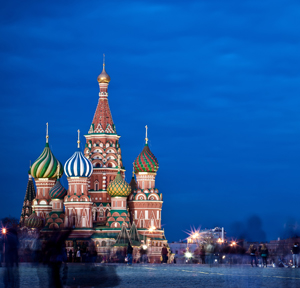Legal
US, EU Unveil Tough New Sanctions On Russia

The EU and US governments have agreed to impose a new round of sanctions against Russia targeting its oil, defence and finance industries, in response to the country’s continued backing of separatists in Ukraine.
The EU and US governments have agreed to impose a new round of
sanctions against Russia targeting its oil, defense and finance
industries, in response to the country’s alleged backing of
separatists in Ukraine.
The measures are the most extensive imposed on Russia since the
Cold War and follow the shooting down of Malaysia Airlines flight
MH17 in eastern Ukraine two weeks ago.
The US is expanding its sanctions to include three banks and is
blocking the exports of specific goods and technologies to the
Russian energy sector, as well as hitting defense companies.
The sanctions imposed on Bank of Moscow, Russian Agricultural
Bank, and VTB Bank OAO include banning people from using Russian
state-owned banks and limiting their access to US capital
markets. The Russian-state owned defense technology firm United
Shipbuilding Corp was also hit and the US government is also
prohibiting exports of energy-related parts to Russia.
President Barack Obama said the new sanctions would “have an even
bigger bite” than the previous ones and would make “a weak
Russian economy even weaker”.
“Russia is once again isolating itself from the international
community, setting back decades of genuine progress. And it
doesn’t have to come to this - it didn’t have to come to this. It
does not have to be this way. This is a choice that Russia, and
President Putin in particular, has made,” said Obama.
Obama pointed out that the sanctions were not, however, part of a
new Cold War. “What it is, is a very specific issue related to
Russia’s unwillingness to recognize that Ukraine can chart its
own path,” Obama added.
Shortly before the new US sanctions were announced, the EU
revealed its new hard-hitting measures targeting Russia’s
state-owned banks, arms and technology sectors. However, the
sanctions fell short of hitting the energy sector, upon which the
EU is hugely reliant on. A list of wealthy individuals believed
to be close to President Vladimir Putin was also drawn up, who
will be subject to asset freezes and travel bans. The EU is
Russia’s largest trading partner and therefore its measures are
likely to hit the country the hardest.
In a jointly issued statement, the president of the European
Council, Herman van Rompuy, and the head of the European
Commission, José Manuel Barroso, said that the sanctions package
was a strong warning that the “illegal annexation of territory
and deliberate destabilization of a neighboring sovereign country
cannot be accepted in 21st century Europe.”
“Furthermore, when the violence created spirals out of control
and leads to the killing of almost 300 innocent civilians in
their flight from the Netherlands to Malaysia, the situation
requires urgent and determined response. The European Union will
fulfill its obligations to protect and ensure the security of its
citizens. And the European Union will stand by its neighbors and
partners,” the statement added.
The EU will review the sanctions after three months to determine
if any progress had been made towards resolving the Ukraine
conflict. It had previously been reluctant to issue new sanctions
and the measures mark a change in tact following the downing of
flight MH17.
The decisions will restrict Russia's access to EU capital markets
and EU nationals and companies will no longer be able to buy or
sell new bonds, equity or similar financial instruments with a
maturity exceeding 90 days, issued by major state-owned Russian
banks, and their subsidiaries. Services related to brokering will
also be prohibited.
In addition, an embargo on the import and export of arms to
Russia was agreed and exports of certain energy-related equipment
and technology to Russia will be subject to prior authorization.
Export licenses will be denied if products are destined for deep
water oil exploration and production or Arctic oil exploration or
for shale oil projects in Russia.
Implications
The issue of a sanctions crackdown on such individuals has
potential implications for the wealth management industry that
has secured business from Russians and other wealthy individuals
from the former Soviet Union and Eastern Europe in recent
years.
Barclays said in a statement that the news could only add more
pressure to an already “challenging operating and financing
environment”.
“The intensification of sanctions by the EU and the US appears to
have been widely anticipated by markets. Following the downing of
the Malaysia commercial jet the week before last, the EU signaled
that it would intensify sanctions and a draft of the sanctions
had been made available. The US had also indicated it would take
more action. Market issuance of Russia banks and companies by has
been very light since the crisis intensified at the end of
January and has recently ground to a standstill,” said
Barclays.
Previous sanctions targeted individuals with close ties to Putin,
including Sergei Ivanov, the president’s chief of staff and
Russian billionaire Gennady Timchenko. Sanctions were also
imposed on Bank Rossiya, the personal bank for senior officials
of the Russian Federation.
The latest action by the US and EU comes after the growing
separatist conflict in Ukraine, which has seen an increasing
death toll as the government seeks control following a failed
cease fire.
Tensions in Ukraine have risen as a result of continued action by
pro-Russian separatists who have taken over large parts of
eastern Ukraine since Crimea was annexed four months ago.